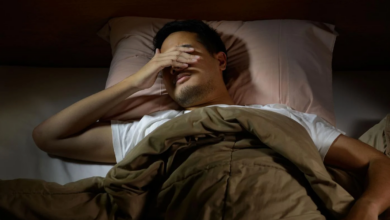
French researchers have discovered that rehearsing simple word classifications up until the moment we nod off leads to the brain continuing such exercises during sleep.
"We show that the sleeping brain can be far more 'active' in sleep than one would think," says Sid Kouider of Ecole Normale Supérieure in Paris.
"Far from falling [into] a limbo when we fall asleep, parts of our brain can routinely process what is going on in our surroundings and apply a relevant scheme of response."
The study, conducted with the University of Cambridge, draws on previous research about subliminal processing, indicating that complex tasks such as speech processing can be completed in a state of unawareness.
Kouider says there may be no limit to the complexity of the tasks but rather it's a question of whether the task can become automatic.
In Kouider's study, 18 participants were asked to classify words into animal or object categories upon pushing a button, attached to electroencephalogram (EEG) reading equipment. In classifying animals, they were asked to press the button with their right hand, and use their left for categorizing objects.
When the process had become automatic for each participant, they were allowed to retire to a comfortable place where they fell asleep and continued the task with new words; the EEG readings suggested the brain continued classifying though at a slower pace than when awake.
Kouider has acknowledged his research could be extended to math equations, and in an interview with Relaxnews, Kouider responded to questions about whether the exercise could potentially be applied to piano playing and even sports movements positively.
"That's actually not a bad idea," he told Relaxnews, "Anything that can be automated can be rehearsed during sleep. The motor system adapts to that stimulation."
Relaxnews asked Kouider if it's possible to draw on sleep for enhancing one's intellectual capacities to which he responded that he and his team are approaching such radical concepts with the utmost caution.
"There must be a good reason why we sleep," he told Relaxnews, indicating he sees no need to change the way we sleep. "Clearly it's not wasted time."



